Project Overview
PBF is working in partnership with Conservation International and the local communities of the Lau Island Group to improve marine and terrestrial biodiversity conservation and provide a platform for integrated natural resource management across the 335, 895 km2 Lau Seascape.
Why Lau Island Group?
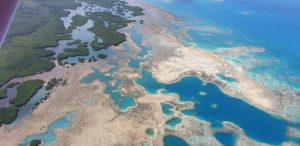 Lau Province is an area of exceptional biological diversity and abundant fish resources with multiple sites defined as ‘Biophysically Special’ in the Unique Marine areas of Fiji Report. Global analyses of marine biodiversity consistently place Lau Island Group among the highest priorities for conservation – a hot spot for species richness and endemism.
Lau Province is an area of exceptional biological diversity and abundant fish resources with multiple sites defined as ‘Biophysically Special’ in the Unique Marine areas of Fiji Report. Global analyses of marine biodiversity consistently place Lau Island Group among the highest priorities for conservation – a hot spot for species richness and endemism.
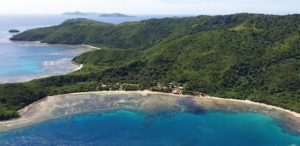 The Lau Group of islands lies on the eastern side of the Fiji archipelago situated east of the Koro Sea and is made up of a chain of about sixty islands and islets of which thirty are inhabited with a population of ~11,000. While most of the northern Lau Group are high islands of volcanic origin, those of the south are mostly carbonate low islands susceptible to the impacts of climate change such as sea level rise.
The Lau Group of islands lies on the eastern side of the Fiji archipelago situated east of the Koro Sea and is made up of a chain of about sixty islands and islets of which thirty are inhabited with a population of ~11,000. While most of the northern Lau Group are high islands of volcanic origin, those of the south are mostly carbonate low islands susceptible to the impacts of climate change such as sea level rise.
Lau Seascape – under threat
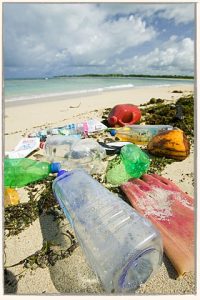 This globally recognized biodiversity hotspot is under threat from:
This globally recognized biodiversity hotspot is under threat from:
- Unmanaged recreational boating resulting in coral reef damage from anchoring, waste disposal and rubbish disposal to the marine and island environments
- Unsustainable land use and fishing methods
- Pollution from land based activities
- Illegal fishing and poaching
- Poorly managed tourism
- Unsustainable coastal development
- Invasive marine species transferred from visitor vessels
- Predatory coral starfish (Crown of thorn starfish) outbreaks exacerbated by increased nutrient loads from land-based activities and sullage disposal.
What is PBF doing to help?
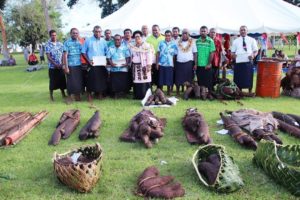 Under the Seascape Planning and Management Framework, PBF is leading community consultations resulting in unanimous support from community leaders to progress the development of the Lau Seascape. Pacific Blue Foundation’s Community and Government Relations Director and paramount Chief from Totoya Island, Lau, Roko Josefa Cinavilakeba (Roko Sau) has been working with Conservation International to foster full participation in strategy planning workshops conducted with representative and partners, the chiefs of each island and their respective Yaubula (natural resource) management Support Teams (YMST). These workshops have resulted in prioritization of threats and remedial actions at the seascape level utilising the following strategies:
Under the Seascape Planning and Management Framework, PBF is leading community consultations resulting in unanimous support from community leaders to progress the development of the Lau Seascape. Pacific Blue Foundation’s Community and Government Relations Director and paramount Chief from Totoya Island, Lau, Roko Josefa Cinavilakeba (Roko Sau) has been working with Conservation International to foster full participation in strategy planning workshops conducted with representative and partners, the chiefs of each island and their respective Yaubula (natural resource) management Support Teams (YMST). These workshops have resulted in prioritization of threats and remedial actions at the seascape level utilising the following strategies:
- Developing inclusive and traditional governance frameworks for natural resource management.
- Locally managed marine and land protected areas including the application of zoning schemes within a representative protected area network
- Restoration of ecosystems and management of marine invasive species
- Facilitating the development of eco-tourism operations and employment of local community members
- Developing community led compliance monitoring and management systems.
Blending traditional knowledge with contemporary science
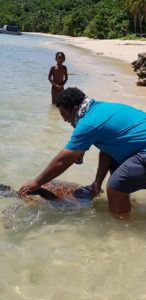 This globally recognised biodiversity hotspot is under threat from:
This globally recognised biodiversity hotspot is under threat from:
- Unmanaged recreational boating resulting in coral reef damage from anchoring, waste disposal and rubbish disposal to the marine and island environments
- Unsustainable land use and fishing methods
- Pollution from land based activities
- Illegal fishing and poaching
- Poorly managed tourism
- Unsustainable coastal development
- Invasive marine species transferred from visitor vessels
- Predatory coral starfish (Crown of thorn starfish) outbreaks exacerbated by increased nutrient loads from land-based activities and sullage disposal.
PBF’s role is to chair the Lau YMST and communicate the interests and concerns of the Lau Island Group communities to the Vanua Lau Council who are traditionally responsible for making decisions about natural resource management priorities. Essentially, PBF’s role is to facilitate the integration between the deep knowledge and understanding of the land and sea held by local communities with a contemporary scientific understanding of natural resource management.
‘The only way that we can truly achieve long term conservation and community well-being is to blend traditional knowledge and cultural connections to the sea with contemporary science’ explains Roko Sau PBF’s Community and Government Liaison Director and Lau YMST Chair. ‘We need to synthesise conservation science within traditional decision-making frameworks and belief systems. The modern world and the traditional world need to work together to protect the natural and cultural values of the Lau Seascape, this is the only way to truly succeed’.
For more information on PBF role in the Lau Seascape Program click here
